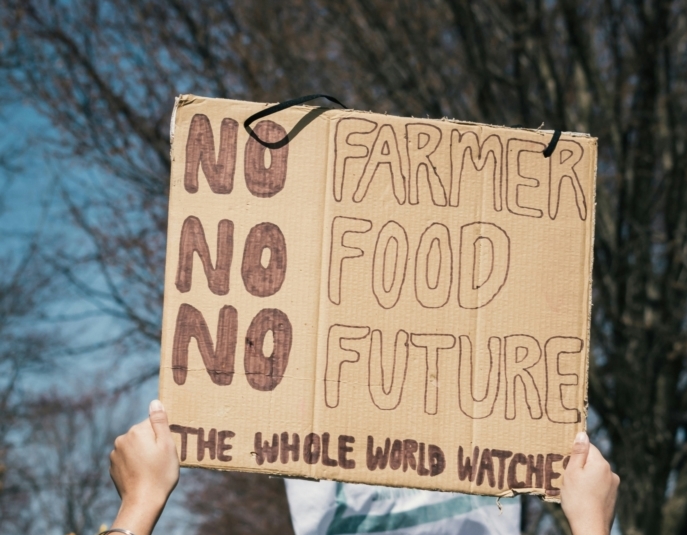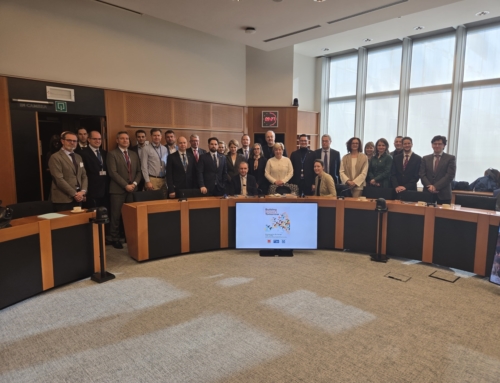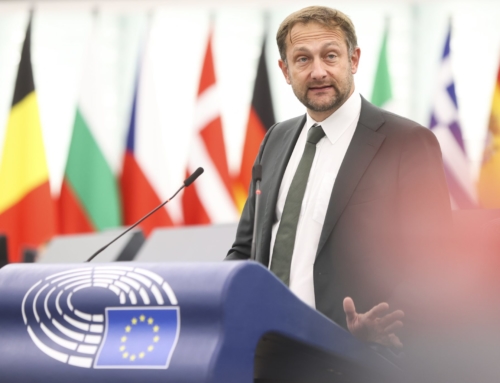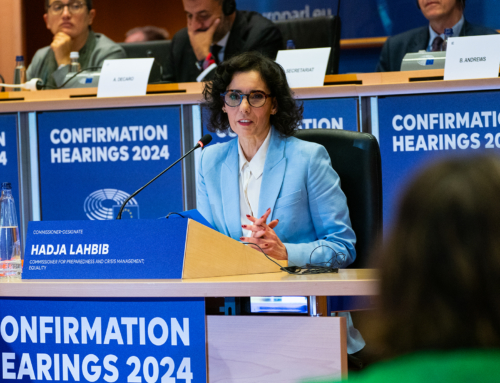Farmer protests must remind us of the families and communities behind production
Brussels, the 27th of February 2024
An opinion article by Vincenzo Bassi, President of FAFCE, regarding the ongoing farmers’ protests.
The current farmers’ protest has provided yet another debate in which politics is polarised. This polarisation has also exacerbated the divisions between those cheering for, and those booing against, Europe despite the various protests not being solely related to European policies. Nevertheless, the protests present an opportunity to reflect on the reasons for this perceived unease with Europe, starting precisely with a reflection on European agricultural policies.
It is worth recalling that it was the common goal of avoiding the food shortages experienced during the World War II and its aftermath that originally motivated European agricultural policy. Since then, much has changed, and there is no going back. Yet, in view of the changing geopolitical framework, it must be considered whether the assumption of European policies is still valid.
While polarisation exists at the ‘grassroots’ level in terms of public opinion towards the institutions, a division also governs the very institutions themselves through their deracinated vision of a society practically divided between producers and consumers. Obviously, a united Europe must set itself economic goals, to be pursued while respecting the principle of subsidiarity. Too often, however, the ‘European method’ has made itself synonymous with red tape. On the one hand, this has strengthened its bureaucratic apparatus. On the other, it has distanced the territories from the wider community and the ‘popular spirit’ desired by the founding fathers of the European Union.
A manifestation of this drift is aggravated precisely by European agricultural policies. Agricultural activity seems to be aimed no longer at feeding people but at selling products. Farmers no longer exist as people, living in families, territories, and communities, but only as producers. In turn, they themselves become consumers who buy agricultural products at the supermarket.
The question, apart from whether such a scheme is successful, should be: is it right? On closer inspection, aid that too often serves only economic objectives has undermined the structures and aims of the farms themselves, which are not always aware of the consequences of unsteady growth. This has created expectations among farmers and has ‘uprooted’ agricultural production from the land and its needs. It has made agriculture an industry like any other, a transformation almost in opposition to nature.
Today, we pay for the absence of this natural, ‘popular’ link that has always characterised farmers, agricultural production, and land. We are hurtling towards an exhaustive specialisation of agricultural products, typical of an ideological consumerism, which undermines certain non-profitable—but essential for survival—productions, with demographic repercussions, especially in rural areas. Yet, it is the European Commission itself that affirms the need for sustainable management of agriculture, as a resource for the common good and an opportunity for those rural areas.
However, such a pattern of economic and social development requires a change in the ‘European method’ to be applied in all spheres, not only with regard to agricultural policies. Similarly, the transitions, ecological and digital, cannot be separated from the demographic transition, the severity of which can no longer be concealed, as was done in the past. This requires firstly, a more responsible participation of communities, encouraging them to pursue their vocation without renouncing agriculture as an economic and social resource. Secondly, it is crucial that national and European institutions are aware that the global market and consumerist logic must not be the only guiding influences.
Instead, limiting agricultural policies to incentives or rules without dialogue with communities just to make European products compete on the world market risks creating anti-European sentiment. It may increase the trade balance of European countries, providing short-term success, but at the cost of the long-term survival of Europe itself. While rejecting the polarisation of populism, there is still time to improve the outlook by valuing and recovering the ‘popular spirit’ of Europe’s founding fathers.
This opinion article by FAFCE President Vincenzo Bassi was originally published by the European Conservative on 26 February 2024.








